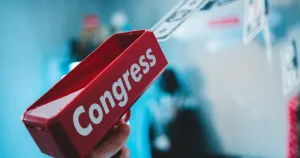Everyone is talking about inflation.
That makes sense, because if we take the classic definition of inflation—a general increase in prices—we’re experiencing it right now. The prices of housing, fuel, and even general consumer goods are rising faster than they have in recent years.
During the frantic period of negotiations two weeks ago over President Joe Biden’s infrastructure and social policy proposals, West Virginia Senator Joe Manchin stated his concern that increased congressional spending would exacerbate inflation and current price increases. At an earlier point, he also expressed that he wanted the Federal Reserve to taper off a program for injecting cash into the national economy, another request ostensibly rooted in concerns about inflation.
Mr. Manchin’s conception of how inflation works is very much in line with conventional popular explanations. According to such explanations, inflation occurs when the national money supply is oversaturated. This abundance of cash in turn increases spending and demand, which strains supply and raises prices. The conventional solution is equally simple. The Federal Reserve can contract the money supply through various avenues, and Congress can theoretically do the same by raising taxes.
But such conventional measures might not have their desired effects on current prices, mainly because present price increases have little to do with the money supply or high levels of demand. Prices are likely going up because supply chain failures have led to a shortage in the supply of goods and services, not because there is an excess of money.
One phenomenon that captures part of our current inflation problem is what some commentators, such as Neil Irwin at the New York Times and Alan Cole and the blog Full Stack Economics, are calling “shadow inflation.” This is a decline in the value of products or services as a result of shortages, such as declining service quality at restaurants due to labor shortages. McDonald’s still serves X burgers a week, but it may take you ten minutes rather than five to get your Big Mac. Prices don’t go up, and numerical supply doesn’t go down. Corners just get cut.
It’s also true that there are shortages and thus actual price increases in discrete sectors of the economy, rather than some across-the-board problem. Shortages in shipping and trucking are making all kinds of everyday goods more expensive, but some things have gotten much more expensive than others. The highest price increases have occurred for fuel and for goods that require semiconductors. These discrete instances of inflation are symptoms of particular and clear supply-side insufficiencies resulting from the pandemic.
Contracting the money supply would likely decrease prices, but doing so could have serious negative effects without getting at the underlying problem of shortages. A recent NPR poll suggests that many Americans are feeling a severe financial squeeze, unable to pay rent or medical bills. Declining to offer them a helping hand through social policy and new jobs through infrastructure spending would do little to reduce inflation while worsening economic conditions for the most precarious among us.
The reality is that more spending, not less, could help lower the costs that are plaguing so many Americans. Universal pre-kindergarten, paid leave, and the Child Tax Credit would actually decrease real costs and go a long way to making working class families more secure financially. It’s also worth noting that Mr. Biden’s proposal portions out its large price tag over ten years, meaning that it would likely have small effects on spending and inflation. Investment in infrastructure could make domestic supply chains more efficient and resilient, reducing shortages and inflation in the long run. In addition, following through on a bill to fund research and development for domestic chip production would make the country less vulnerable to weaknesses in global supply chains.
These are longer term solutions. Current inflation may be transitory, or it may not be—we don’t yet know. If it isn’t, Congress and the White House should consider measures to increase the supply of goods which are increasing in price. The best functioning democracy requires leadership which best understands the causes of challenges. If COVID has taught American policymakers one thing, it’s that the conventional explanations on which we’ve long relied might not be as solid as we thought. That’s not a bad thing by any means, unless we stubbornly refuse to adapt.
Subscribe to Spectacles

Comments
Join the conversation